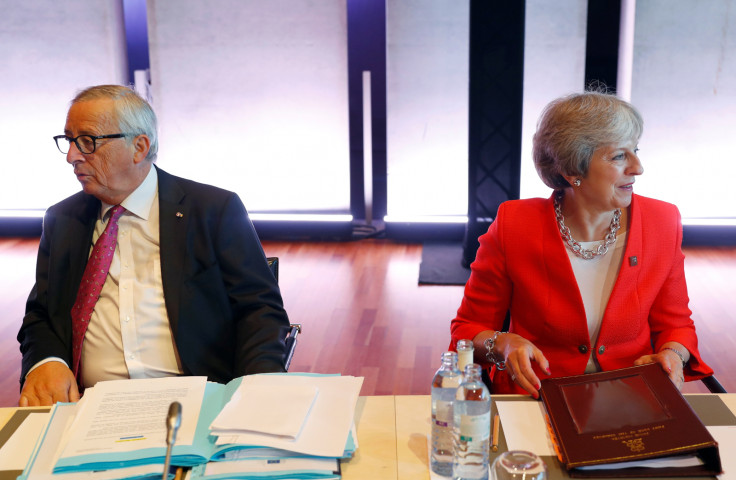Is two years of agonising Brexit deadlock finally over?
Reports overnight in London that a deal on the Northern Ireland border, the last missing piece of a withdrawal agreement, was close.
BRUSSELS — European Union Commissioner Guenther Oettinger says he sees room for a major breakthrough in the Brexit negotiations next week when leaders from the 27 EU nations meet with British Prime Minister Theresa May.
Oettinger confirmed reports that progress was being made on the divisive issue of the border on the island of Ireland and said Friday that "It does appear possible there will be a breakthrough."
He insisted that "certainly the way to do this is being prepared this week and most likely will be presented next week."
EU leaders have a two-day summit starting Wednesday.
There were reports overnight in London that a deal on the Northern Ireland border, the last missing piece of a withdrawal agreement, was close.
In recent days the mood music around the possibility of a historic deal, from both the European Union and the British government, has been increasingly positive EU's chief Brexit negotiator said Wednesday that an agreement on Britain's exit "is within reach," if negotiations make progress before a summit next week.
Michel Barnier said that up to 85 percent of the work is done on the deal for the U.K's departure and post-Brexit relationship with the EU, but the issue of ensuring a transparent border on the island of Ireland remains to be addressed.
He offered suggestions to make sure border checks are be kept to a minimum. Yet he also warned that some British proposals for future trade, as they stood, would give the U.K. too much of a competitive trade advantage.
With goodwill from both sides, he said an "agreement is within reach".
EU Commissioner Dimitris Avramopoulos told reporters that Barnier and his team "are working day and night to reach a deal."
German Chancellor Angela Merkel said she was pleased to see the intensive work being done in Brussels, but also sounded a note of caution.

Britain is leaving the EU on March 29 and the possibility of there being no deal on future relations — particularly trade — is worrying businesses and politicians.
As part of the EU, Britain benefits from seamless trade with the bloc, its biggest trading partner. The key question is how to let Britain exit the EU without too much disruption to trade and without reinstalling a hard border between the Republic of Ireland and Britain's Northern Ireland.
The EU's proposed solution — to keep Northern Ireland inside the bloc's single market and customs union after the rest of the U.K. leaves — is fiercely opposed by the Democratic Unionist Party, a pro-British Northern Ireland party that props up May's minority government.
DUP leader Arlene Foster has said a deal must not breach its "red line" that there can be no new barriers between Northern Ireland and the rest of the U.K. The party is threatening to vote against the government's budget — potentially toppling May's administration — later this month if it doesn't get its way, according to British broadcasters.
May's Conservative Party is also divided over how close an economic relationship to seek with the EU after Brexit, leaving the prime minister in a precarious position. She has to get any deal agreed with the EU through Parliament, and the numbers aren't in her favour.
May urged lawmakers from all parties to "put the national interest first" and support the deal she is trying to negotiate with the EU.
© Copyright IBTimes 2025. All rights reserved.





















